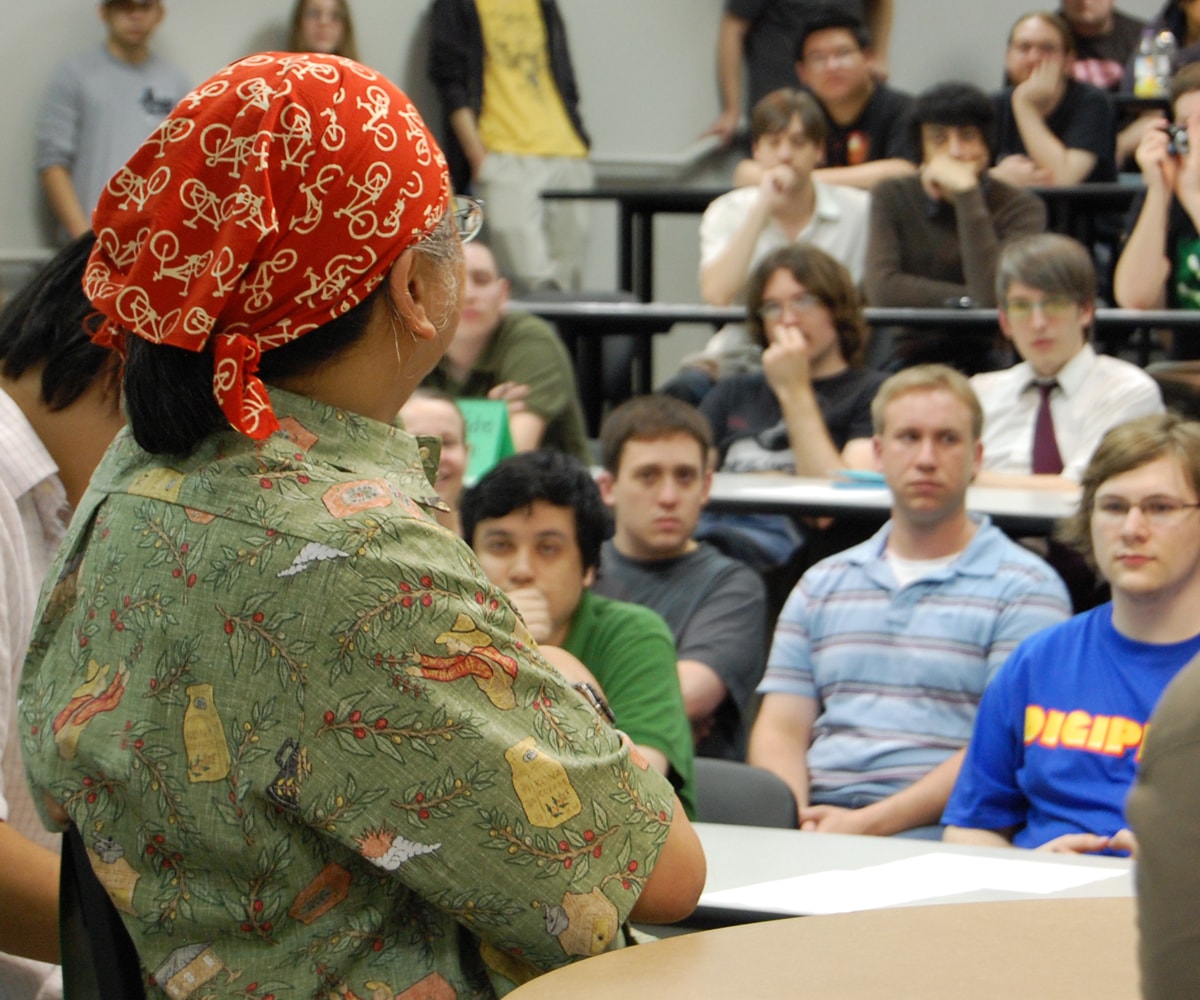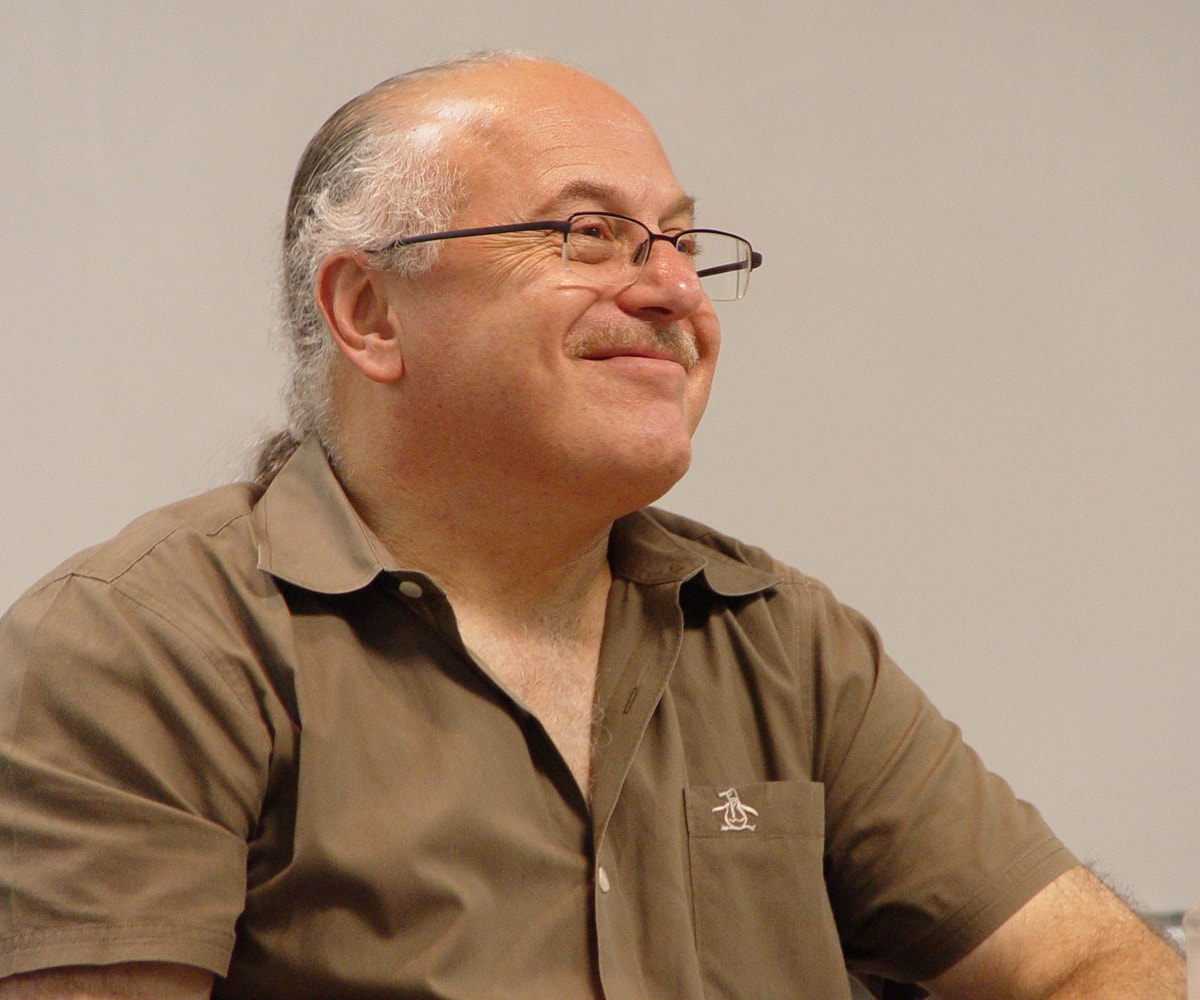On July 11, renowned game composer Nobuo Uematsu and Grammy-award-winning conductor Arnie Roth spoke at DigiPen.
The two were visiting the institute at the invitation of game professor Rachel Rutherford and participated in a panel discussion chaired by Daniel Rosas, founder of the DigiPen Game Music Composer’s Club.
Uematsu composed music for all thirteen Final Fantasy games. He is widely acknowledged for having elevated game composition to the level of art and for having helped make Final Fantasy an epic success.
“A videogame has over ten times the amount of music as a feature-length film,” Roth observed. “It takes Nobuo Uematsu a full year to write one game’s music.”
Uematsu and Roth were in Seattle to lead three “Distant Worlds: Final Fantasy” concerts with the Seattle Symphony, featuring 150 orchestral musicians, a 40-voice choir, and three operatic soloists. While the symphony played game music, a giant video screen projected visuals ranging from early chocobos to stately airships and other cinematics. Highlights included the famous Final Fantasy VIIIscene with the barking dog and battle music; the opera scene from Final Fantasy VI; Final Fantasy VII’s appearance of Sephiroth (blended with visuals from the movie Advent Children), Aerith’s Theme, and One-Winged Angel Theme; and Terra’s Theme from Final Fantasy VI.
It takes Nobuo Uematsu a full year to write one game’s music.
The Seattle Symphony created a special $10 DigiPen student ticket (as opposed to the normal $60 to $80) for the Friday performance and more than 40 DigiPen students attended.
While at DigiPen, Uematsu provided many insights into his creative process:
“When I am composing, I usually hear the flute first. I don’t know why that is. But I hear the flute.”
“When I began composing, games could only play three notes at once. I think, in many ways, this made for better music than now, when there are so few restrictions.”
“Don’t try to be great. Just start. Sometimes I start with a piece of music I have already written. Then I play with it until it starts to evolve and becomes something new. Just start.”
“Don’t try to copy what is popular. Write the music you love. It will come from the heart, and it will touch the hearts of others. If you love blues, write blues. If you love jazz, write jazz. Write what you love.”

After the panel, Uematsu and Roth saw five DigiPen games: Block Breakers, Dreamside Maroon, Igneous, Kabloom, and Attack of The 50-Foot Robot. Musically, these offered a fully composed original soundtrack (“Great music,” said Uematsu); a programmatically layered soundtrack; an all-drums soundtrack; a delicate sound-effects-only soundtrack; and a collage of epic classical hits that had guests laughing. Afterward, these icons agreed that the event was great. “Thank you for inviting us,” both said, as they headed to Seattle for the final concert of the series.

